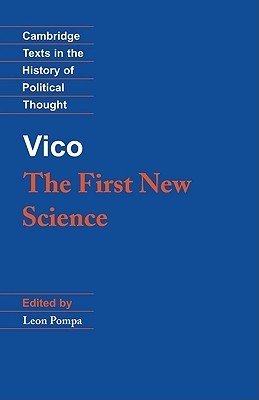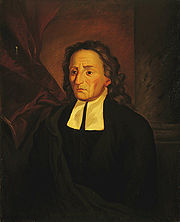
The First New Science
2002
First Published
4.13
Average Rating
368
Number of Pages
This account of the basic theme of Vico's mature philosophy explores the question of whether philosophical theories can ever be more than an intellectual expression of the underlying beliefs of an age. The first complete English translation of the 1725 text, Vico's The First New Science ia now accessible to a broad, new readership. It is accompanied by a glossary, bibliography, chronology of Vico's life and expository introduction.
Avg Rating
4.13
Number of Ratings
16
5 STARS
50%
4 STARS
31%
3 STARS
6%
2 STARS
6%
1 STARS
6%
goodreads
Author

Giambattista Vico
Author · 6 books
Giovanni Battista (Giambattista) Vico or Vigo was an Italian political philosopher, rhetorician, historian, and jurist. A critic of modern rationalism and apologist of classical antiquity, Vico's magnum opus is titled "Principles/Origins of [re]New[ed] Science about the Common Nature of Nations" (Principi di Scienza Nuova d'intorno alla Comune Natura delle Nazioni). The work is explicitly presented as a "Science of reasoning" (Scienza di ragionare), and includes a dialectic between axioms (authoritative maxims) and "reasonings" (ragionamenti) linking and clarifying the axioms. Vico is often claimed to have inaugurated modern philosophy of history, although the expression is alien from Vico's text (Vico speaks of a "history of philosophy narrated philosophically"). He is otherwise well-known for noting that verum esse ipsum factum ("true itself is fact" or "the true itself is made"), a proposition that has been read as an early instance of constructivist epistemology. Overall, the contemporary interest in Vico has been driven by peculiarly historicist interests as expressed most notably by Isaiah Berlin, Tagliacozzo, Verene, and Hayden White.